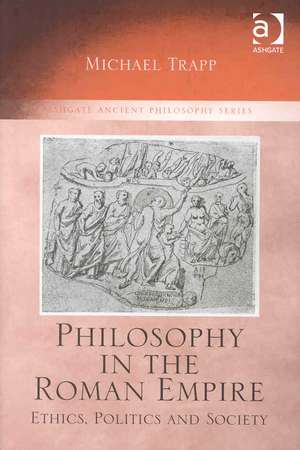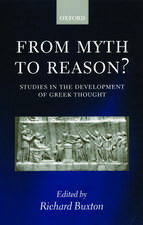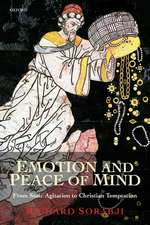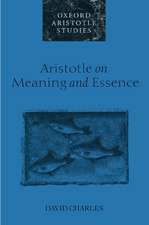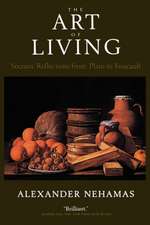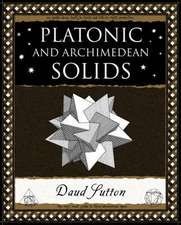Philosophy in the Roman Empire: Ethics, Politics and Society: Ashgate Ancient Philosophy Series
Autor Michael Trappen Limba Engleză Hardback – 22 mai 2007
| Toate formatele și edițiile | Preț | Express |
|---|---|---|
| Paperback (1) | 487.96 lei 6-8 săpt. | |
| Taylor & Francis – 31 mar 2017 | 487.96 lei 6-8 săpt. | |
| Hardback (1) | 1060.25 lei 6-8 săpt. | |
| Taylor & Francis – 22 mai 2007 | 1060.25 lei 6-8 săpt. |
Preț: 1060.25 lei
Preț vechi: 1292.98 lei
-18% Nou
Puncte Express: 1590
Preț estimativ în valută:
202.87€ • 211.82$ • 167.91£
202.87€ • 211.82$ • 167.91£
Carte tipărită la comandă
Livrare economică 04-18 aprilie
Preluare comenzi: 021 569.72.76
Specificații
ISBN-13: 9780754616184
ISBN-10: 0754616185
Pagini: 300
Dimensiuni: 156 x 234 x 18 mm
Greutate: 0.61 kg
Ediția:1
Editura: Taylor & Francis
Colecția Routledge
Seria Ashgate Ancient Philosophy Series
Locul publicării:Oxford, United Kingdom
ISBN-10: 0754616185
Pagini: 300
Dimensiuni: 156 x 234 x 18 mm
Greutate: 0.61 kg
Ediția:1
Editura: Taylor & Francis
Colecția Routledge
Seria Ashgate Ancient Philosophy Series
Locul publicării:Oxford, United Kingdom
Cuprins
Contents: Preface; 'Ethics', 'philosophy' and philosophia; Perfection and progress; The passions; Self, person and individual; Self and others; Politics 1: constitutions and the ruler; Politics 2: good communities; Politics 3: philosophia in politics and the community; Philosophia and the mainstream; Appendix; Bibliography; Indexes.
Notă biografică
Michael Trapp is Professor of Greek Literature and Thought at King's College London, UK. He has previously published an edition and a translation of the Discourses of Maximus of Tyre, and a wide range of papers on the philosophy and philosphical literature of the Imperial period. His most recent works are Greek and Latin Letters. An Anthology (CUP, 2003), and two volumes of edited papers Socrates from Antiquity to the Enlightenment and Socrates in the Nineteenth and Twentieth Centuries (both Ashgate, 2007).
Recenzii
"...an up-to-date, concise, nuanced analysis of the philosophical literature of the period...this book offers clear writing, anglicized transliterations, and a bio-bibliographic appendix that make it accessible...Highly recommended.’ Choice ’Trapp's study of ethical thought in the continuations of the Hellenistic schools and derivative contexts provides us with a reference work of lasting value - and much food for further thought’ Aestimation ’This is the most stimulating and welcome book, taking, as it does, a synoptic view of the general thrust of philosophical discourse in the period of the Roman Empire... All in all, a most refreshing and stimulating study, placing the philosophos securely in the society which he inhabited.’ Sehepunkte ’[Trapp] has written a most readable and challenging guide to a complex and burgeoning period in the history of ancient philosophy..."
- Journal of Roman Studies
"All in all, Michael Trapp's book is an interesting overview and discussion of a clearly interesting and important period of philosophy in a transformative culture that changed how philosophy theorized about political legitimacy and power. Trapp's book is a detailed introduction not just about the most important philosophical discussions, but also gives a very readable introduction to the different prevalent philosophical schools. His methodology of juxtaposing the different schools against each other, while concentrating on the most marked differences between these schools, allows the reader to get a better grip on the philosophical schools."
- Harry Whitzthum, Metapsychology journal
- Journal of Roman Studies
"All in all, Michael Trapp's book is an interesting overview and discussion of a clearly interesting and important period of philosophy in a transformative culture that changed how philosophy theorized about political legitimacy and power. Trapp's book is a detailed introduction not just about the most important philosophical discussions, but also gives a very readable introduction to the different prevalent philosophical schools. His methodology of juxtaposing the different schools against each other, while concentrating on the most marked differences between these schools, allows the reader to get a better grip on the philosophical schools."
- Harry Whitzthum, Metapsychology journal
Descriere
Michael Trapp draws on a broad range of sources for this study of Imperial period philosophical thought. The distinctive doctrines of the many individual philosophical schools are outlined, as well as the choices they presented to the potential philosophical convert. Trapp also addresses the elitist status of philosophy itself and the ways in which it may have posed a threat to other values.
